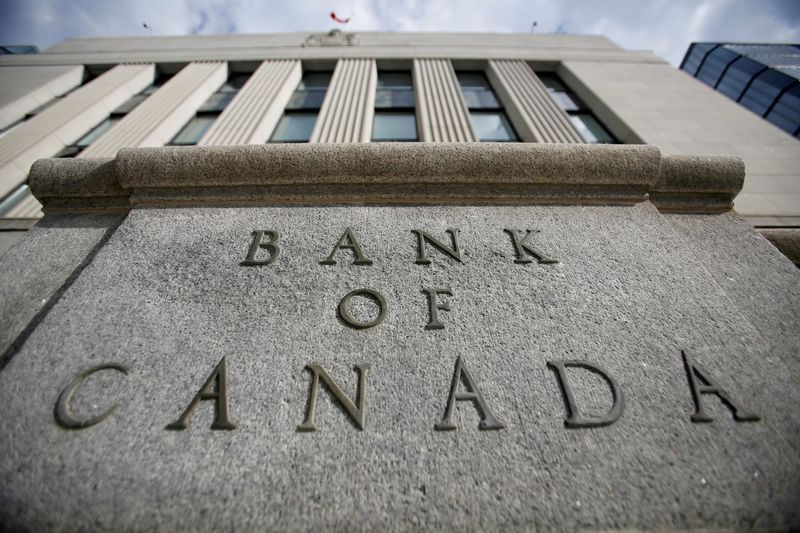By Julie Gordon
OTTAWA (Reuters) -Canada’s inflation eased slightly in July on lower gasoline prices, official data showed on Tuesday, prompting the central bank governor to say that the annual rate may have peaked but will “remain too high for some time”.
Underlying price pressures suggested another outsized interest rate hike was still on the cards. In an op-ed in the National Post Web site posted after the data was released, Bank of Canada Governor Tiff Macklem said inflation is still “far too high”.
Canadian inflation slowed to 7.6% in July, matching analyst forecasts and down from an almost 40-year high of 8.1% in June, Statistics Canada data showed. It was still far above the Bank of Canada’s 2% target.
“It does confirm the fact that inflation peaked, actually, in June … at least that’s what we think,” said Jimmy Jean, chief economist at Desjardins Group, adding: “It’s going to be slow to really come down going forward.”
Gasoline prices, up 35.6% in July versus 54.6% in June, did much to blunt annual price acceleration, while the cost of food and demand-driven services, such as travel and dining out, continued to gain speed.
The underlying price pressures were visible in the Bank of Canada’s three core measures of inflation, which are designed to be less volatile than the headline number.
CPI common, which the bank says is the best gauge of the economy’s performance, hit 5.5%, with CPI median edging up to 5.0% and CPI trim easing slightly to 5.4%.
The average of those three preferred measures was at a record high, suggesting the economy would face price pressures for months to come, said Jay Zhao-Murray, market analyst at Monex Canada.
That boosts the case for another oversized interest rate hike following a 100-basis-point increase last month, he said.
“The good headline, bad story means that on the margin, this report makes a 75-basis-point hike from the Bank of Canada more likely,” Zhao-Murray said. “It indicates that more demand destruction is needed to really tamp down inflation.”
Money markets see a 25% chance of a 75-bp hike at the September decision, with most bets on 50 basis points to take the policy rate to 3.0%. Calls for a rate cut as soon as next year have been priced out in recent weeks.
The Bank of Canada’s surprise 100-bp increase last month was the fourth hike in a row, with three of those moves larger than the typical quarter percentage point.
The Canadian dollar was trading 0.2% higher at 1.2873 to the greenback, or 77.68 U.S. cents, while the Canadian 10-year yield climbed 12.5 basis points to 2.820%, its highest in nearly three weeks.
(Reporting by Julie Gordon in Ottawa; Additional reporting by Dale Smith and Steve Scherer in Ottawa, and Fergal Smith in Toronto; Editing by Peter Graff, Alex Richardson, Deepa Babington and Sandra Maler)
